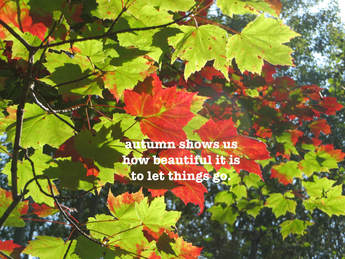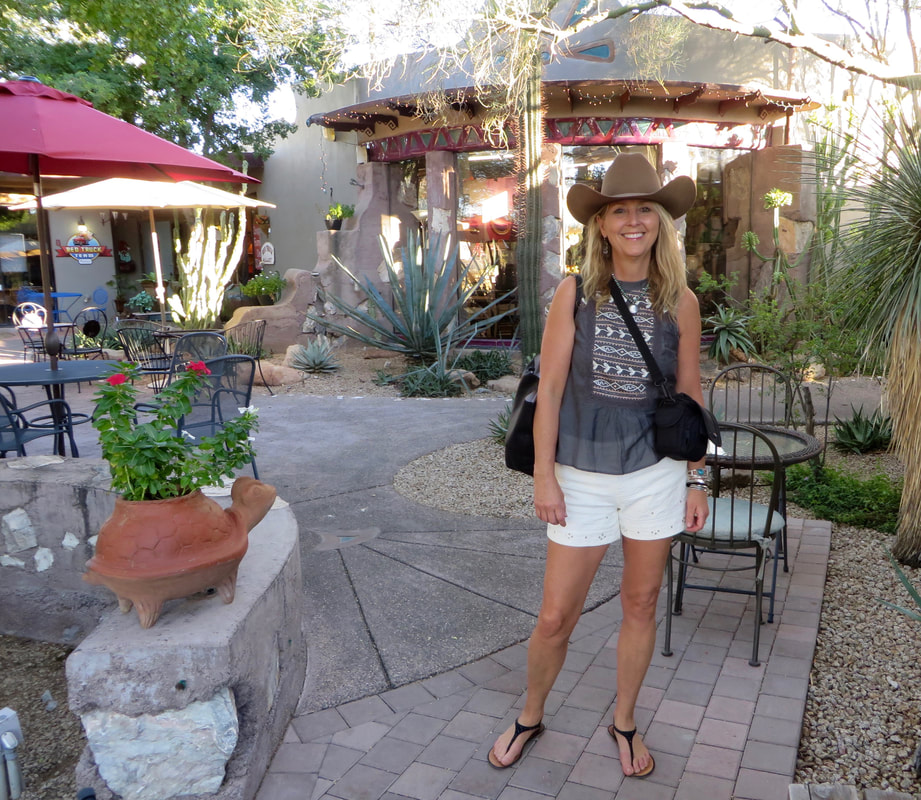 As the days ahead become cooler, crisper, darker, it can be common to begin to mournfully resist the change of the seasons, the inevitable cycle of leaves falling, lazy summer days becoming a memory, the chilly mornings a harbinger of what lies ahead (at least for some of us). For me personally, it is always quite a struggle to let go, to be “here”, to resist attachment and the desire for endless summer. Many spiritual traditions and guides have emphasized the harm we bring upon ourselves by wanting things to be other than they are, to fruitlessly attempt to control things in our lives, and to embrace what is un-embraceable, to resist as opposed to flowing with life and its constant changes. John Izzo, in his wonderful book, The Five Thieves of Happiness, writes, “A principle to bear in mind is that almost all internal suffering comes from resistance to whatever is true in any moment. It is not the happenings in our life that lead to unhappiness but the desire to control them rather than accept with passivity. Don’t confuse acceptance with passivity. Remember intention without tension, focus without attachment, wanting or trying to achieve is not the source of unhappiness, but the desire for control of the outcome is.” A yogic concept that helps us navigate being open to “what is” comes from the fifth yama (universal ethical observances), aparigraha, in Pantanjali’s Yoga Sutras. Aparigraha can be translated as nongrasping, acknowledging abundance, non-attachment and non-possessiveness. B.K.S. Iyengar writes “By the observance of aparigraha, the yogi makes his life as simple as possible and trains his mind not to feel the loss or lack of anything. Then everything he (she) really needs will come to them by itself at the proper time.” When we use the tools available to us on the yoga mat and incorporate yoga philosophy to see more clearly how we may not be practicing abundance in how we think or talk, to or about ourselves, how we focus on our limitations as opposed to our strengths, when we see only how far we have to go, rather than how far we’ve come, when we compare our bodies, our poses, our knowledge wistfully to another, when we wish we were younger, more flexible, had longer arms or legs, were thinner. Once we have this awareness on the mat, we can then begin to shift it off the mat by becoming aware of our tendencies -- to see the glass as half empty not full, seeing our obstacles, challenges, struggles as the enemy instead of an amazing friend that will teach us what we need to know, make us stronger, wiser, or more compassionate, finding it difficult to have trust that things are happening at the perfect time and exactly as they should for our highest good, being so attached to our expectations and the inevitable disappointments instead of being open to the potentiality, to the possibility. How do we learn to live more in the present moment and surrender to what is? The Yoga Sutras again offers a tool we can practice…pratipaksha bhavanam, the practice of cultivating the opposite. Literally like flipping a switch- catch yourself thinking a negative thought, make it a positive one. Find yourself holding onto to something with both hands, drop it like a hotcake. The idea here, and it’s quite an effective one, is that the energy of doing the opposite holds much less resistance than trying to break a habit that doesn’t serve us. Short, sweet, simple- do the opposite. Awareness is key to making any long term shifts, so first notice how you may be labeling yourself weak, then think of a situation or a pose where you worked to become stronger. If your “go to” habit is to give up right away, try to be more persistent. If your feelings are easily hurt, instead be more resilient. If you criticize yourself for making a mistake, instead applaud yourself for some way the mistake enlightened you or changed you in a positive way. If you catch yourself repeatedly ruminating about a situation you wish had turned out differently, switch gears and think of another situation you successfully navigated. And if you, like me, resist the end of summer, acknowledge abundance, and flip the switch to think of something you really love about fall. “Be content with what you have; rejoice in the way things are. When you realize there is nothing lacking, the whole world belongs to you.” Lao Tzu.
1 Comment
|
AuthorA yoga teacher since 2008, I am passionate about yoga (of course) wellness, good food and books. I love nature, sunshine, and seek beauty, truth, and peace. Archives
September 2020
Categories |


 RSS Feed
RSS Feed